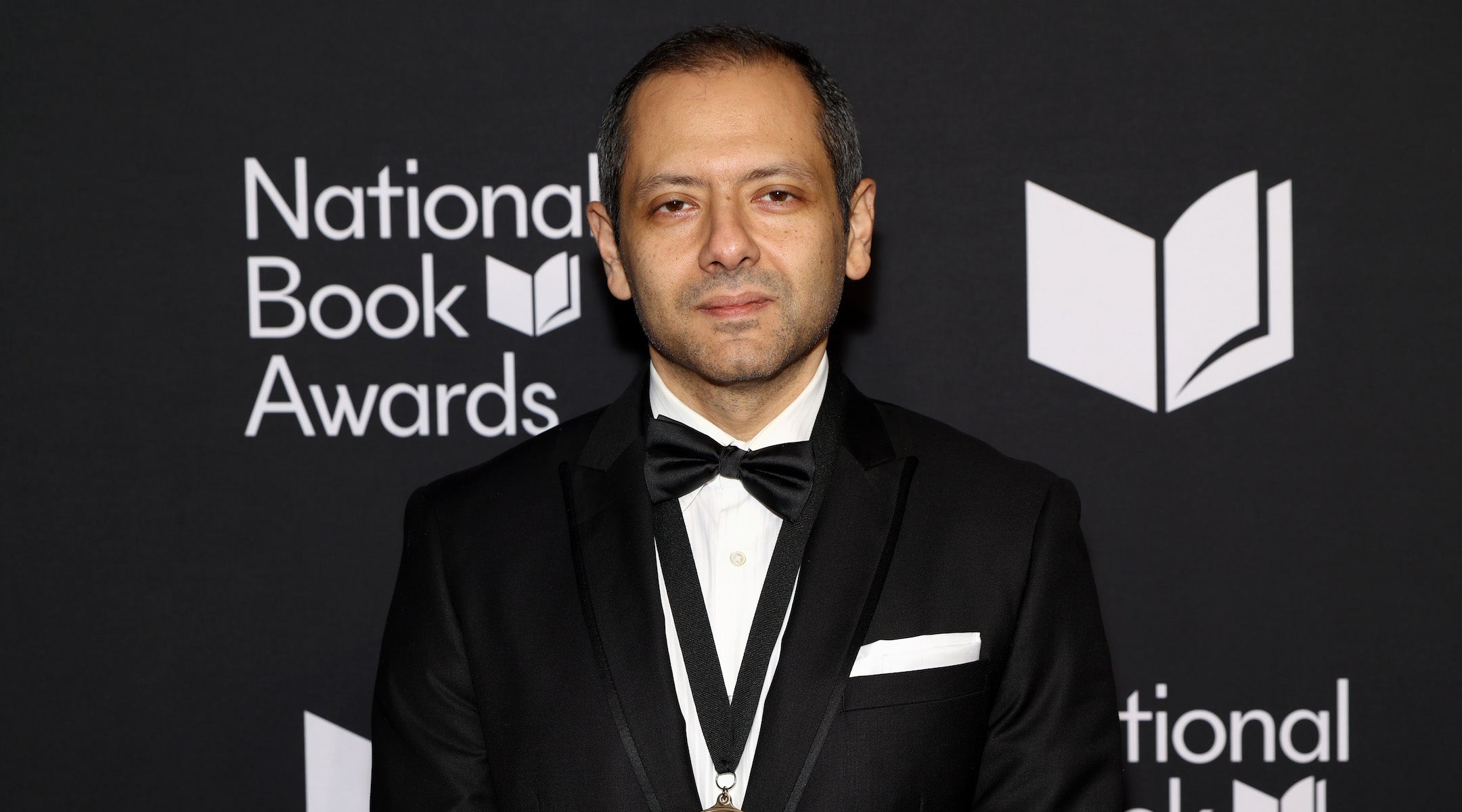National Book Award in nonfiction goes to Gaza polemic ‘One Day, Everyone Will Have Always Been Against This’
The book by Omar El Akkad stems from a viral tweet. A book about Jewish refugees won the young people’s literature award.

Omar El Akkad attends the 76th National Book Awards at Cipriani Wall Street on November 19, 2025 in New York City. Photo by Arturo Holmes/Getty Images
(JTA) — A provocative essay collection about the West’s response to the Gaza war and a children’s book about young Iranians helping a Jewish refugee in World War II were two of the big winners at the National Book Awards Wednesday evening.
“One Day, Everyone Will Have Always Been Against This,” by Egyptian-Canadian journalist and author Omar El Akkad, won the evening’s nonfiction prize. Based on a viral tweet El Akkad sent early into the Israel-Gaza war, the book maligns Western liberalism for, in El Akkad’s telling, turning its back on Palestinian suffering.
“It’s very difficult to think in celebratory terms about a book that was written in response to a genocide,” El Akkad said in his acceptance speech. “It’s difficult to think in celebratory terms when I know my tax money is doing this, and many of my elected representatives happily support it.”
He later continued, “And it is difficult to think in celebratory terms when I have been watching people snatched off the streets by masked agents of the state for daring to suggest that Palestinians might be human beings” — a likely reference to cases like student activist Rumeysa Ozturk. El Akkad thanked what he said were “writers who have spoken out,” as thousands of authors have pressured literary organizations like PEN America to take a harder line against Israel.
El Akkad’s book is one of several conversation-starters that have been published as Israel-critical reflections on the war, a crop that also includes Peter Beinart’s “Being Jewish After the Destruction of Gaza.” The nonfiction judging panel included Jewish journalist Eli Saslow, who has written extensively about the rise of antisemitism and white nationalism. Jewish public radio host Ira Glass, who introduced the category in a prerecorded voiceover, noted that it is among titles that “indict the Western world in the ongoing destruction of Gaza.”
Elsewhere, Daniel Nayeri’s “The Teacher of Nomad Land: A World War II Story,” a young-reader novel following two orphaned Iranian children in 1941 who help a Jewish boy evade a Nazi spy, won the award for young people’s literature. The plot of the book involves the siblings deciding whether to help their new Jewish friend flee for Israel.
The novel is rooted in the little-told history of the approximately 6,000 Polish Jewish refugees from the Nazis whom the Soviet Union sent to Iran, many of them children. Nayeri’s family are Iranian refugees who converted from Islam to Christianity. The title won over another Jewish-interest finalist, Kyle Lukoff’s “A World Worth Saving.”
The musician Laufey, introducing the book as a nominee, said it taught “the value of cross-cultural understanding and education.”
A third award winner of the night also concerned the Arab world. Lebanese author Rabih Alameddine’s novel “The True True Story of Raja the Gullible (and His Mother)” won the National Book Award for fiction. The comedic book charts several generations of a Lebanese family. In his acceptance speech, Alameddine discussed the recent bombing of a Palestinian refugee camp in Lebanon.
“I kept thinking, they make desolation and call it a ceasefire,” the author said. “Sometimes as writers we have to say, enough, enough.”
The National Book Awards are among the many institutions in the literary world that have been rocked by the Israel-Gaza war — as well as broader allegations of antisemitism. In 2023 a Jewish sponsor withdrew from the ceremony over concerns that some authors planned to make a statement urging a ceasefire. Last year the organization’s executive director defended the awards’ decision to grant its lifetime achievement prize to influential Black publisher Paul Coates despite his history of publishing antisemitic texts.















